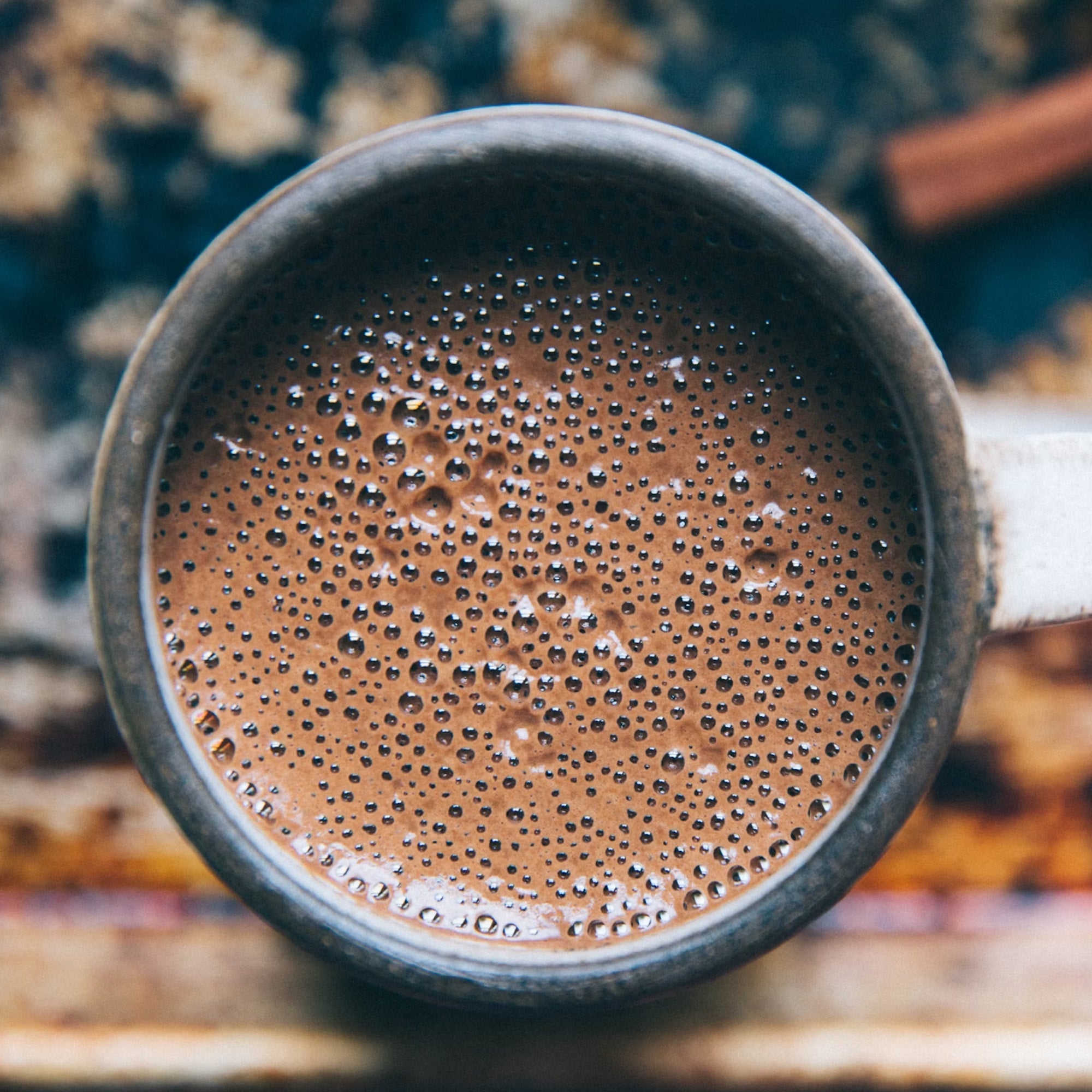I. Introduction
When we think about gut health, our minds often jump to digestive comfort: avoiding bloating, indigestion, or irregularity. While these are certainly important aspects, the true impact of a balanced gut extends far beyond the confines of our digestive system. A burgeoning field of scientific research is revealing a profound and often surprising connection between the health of our gut microbiome and our mental well-being, influencing everything from our mood and stress levels to our cognitive function.
This intricate communication system, known as the gut-brain axis, highlights that a healthy gut is not just about physical comfort; it’s a cornerstone of mental resilience and emotional balance. When our gut is in harmony, it sends positive signals to our brain, fostering a sense of calm, clarity, and overall well-being. Conversely, an imbalanced gut can contribute to anxiety, stress, and even more serious mental health challenges.
This blog post will delve into the surprising mental health benefits of cultivating a balanced gut. We will explore the fascinating science behind the gut-brain axis, how an optimal gut microbiome contributes to a healthier mind, and how incorporating key ingredients like cacao, prebiotics, and probiotics into your daily routine can be a delicious and effective strategy for nurturing both your gut and your mental health. Prepare to discover that true mental well-being often begins in the gut.
II. The Gut: More Than Just a Digestive Organ
For centuries, the gut was primarily viewed as a simple tube responsible for digesting food and absorbing nutrients. However, modern science has unveiled its true complexity, revealing it to be a sophisticated ecosystem with far-reaching influence over our entire body, especially our brain.
A. The Enteric Nervous System: Your “Second Brain”
Within the walls of our digestive tract lies the enteric nervous system (ENS), a vast and intricate network of neurons often referred to as the “second brain.” This isn’t just a metaphor; the ENS contains hundreds of millions of neurons, more than the spinal cord, and can operate independently of the central nervous system (CNS).
Independent Function: The ENS can manage the entire digestive process – from swallowing to nutrient absorption and waste elimination – without direct input from the brain. This autonomy highlights its complexity and importance.
Bidirectional Communication: While autonomous, the ENS is in constant, bidirectional communication with the brain via the vagus nerve, neurotransmitters, hormones, and immune pathways. This continuous dialogue is the essence of the gut-brain axis.
B. The Gut Microbiome: A Universe Within
Residing within our gut is the microbiome – a vast and diverse community of trillions of microorganisms, including bacteria, viruses, fungi, and archaea. This microbial ecosystem is unique to each individual and plays a pivotal role in nearly every aspect of our health.
Digestive Functions: The microbiome helps break down food components that our own enzymes cannot digest, synthesizes essential vitamins (like B vitamins and Vitamin K), and protects against pathogens.
Immune System Development: A healthy gut microbiome is crucial for the proper development and function of our immune system. A significant portion of our immune cells reside in the gut-associated lymphoid tissue (GALT).
Metabolic Regulation: The microbiome influences metabolism, energy extraction from food, and even fat storage.
Influence on the Brain: Crucially, the gut microbiome actively communicates with the brain, influencing mood, cognition, and behavior. This is where the surprising mental health benefits begin.
Understanding the gut as a complex, interconnected system, rather than just a digestive organ, is fundamental to appreciating how its balance profoundly impacts our mental well-being, far beyond just alleviating bloating.
III. The Gut-Brain Axis and Mental Well-being: A Deeper Dive
The intricate communication between the gut and the brain is a two-way street, and its proper functioning is paramount for optimal mental health. When this axis is balanced, it fosters resilience; when it’s disrupted, it can contribute to a range of mental health challenges.
A. Neurotransmitter Production in the Gut
One of the most direct ways the gut influences the brain is through its role in neurotransmitter production. Neurotransmitters are chemical messengers that regulate mood, sleep, appetite, and other vital brain functions.
Serotonin: An astonishing 90% of the body’s serotonin, often dubbed the “happy chemical” due to its role in mood regulation, is synthesized in the gut. The gut microbiome plays a critical role in this production, influencing the availability of tryptophan (serotonin’s precursor) and the activity of enzymes involved in its synthesis. An imbalanced gut can lead to suboptimal serotonin levels, potentially contributing to feelings of anxiety and depression.
GABA (Gamma-Aminobutyric Acid): Certain beneficial gut bacteria can produce GABA, the primary inhibitory neurotransmitter in the brain. GABA helps to calm the nervous system, reduce neuronal excitability, and promote relaxation. Higher levels of GABA are associated with reduced anxiety and improved sleep quality.
Dopamine and Norepinephrine: While produced primarily in the brain, the gut microbiome can indirectly influence the pathways related to dopamine (reward and motivation) and norepinephrine (alertness and stress response), further impacting overall emotional balance.
B. The Vagus Nerve: The Superhighway of Communication
The vagus nerve is the longest cranial nerve and serves as the primary physical link between the gut and the brain. It transmits signals in both directions, playing a crucial role in relaying information about gut sensations, inflammation, and microbial activity to the brain.
Gut Feelings: The vagus nerve is responsible for those intuitive “gut feelings” we experience. It relays signals from the gut about its state, influencing our emotional responses and overall sense of well-being.
Stress Response Modulation: A healthy vagal tone (the activity of the vagus nerve) is associated with better stress resilience and a more balanced autonomic nervous system. The gut microbiome can influence vagal tone, meaning a balanced gut can help calm the body’s stress response.
C. Inflammation: The Silent Disruptor
Chronic, low-grade inflammation, often originating in the gut, is a significant contributor to mental health issues. An imbalanced gut microbiome (dysbiosis) can lead to:
Increased Gut Permeability (“Leaky Gut”): When the gut barrier is compromised, inflammatory compounds, toxins, and even undigested food particles can leak into the bloodstream. This triggers a systemic inflammatory response.
Neuroinflammation: These inflammatory signals can cross the blood-brain barrier, leading to inflammation in the brain (neuroinflammation). Neuroinflammation is strongly linked to mood disorders, cognitive decline, and increased anxiety.
HPA Axis Dysregulation: Chronic inflammation can dysregulate the hypothalamic-pituitary-adrenal (HPA) axis, the body’s central stress response system, leading to elevated cortisol levels and a heightened state of physiological stress.
By understanding these intricate connections, it becomes clear that nurturing a balanced gut is not just about digestive comfort; it’s a fundamental strategy for supporting robust mental health and fostering a calm, resilient mind.
IV. How a Balanced Gut Benefits Your Mind
Cultivating a balanced gut microbiome offers a cascade of benefits that directly translate into improved mental health, moving far beyond the simple absence of digestive discomfort. These benefits contribute to a more resilient, positive, and calm state of mind.
A. Enhanced Mood and Emotional Stability
Optimal Neurotransmitter Production: A balanced gut, rich in beneficial bacteria, ensures the efficient production of mood-regulating neurotransmitters like serotonin and GABA. This leads to more stable mood, reduced irritability, and a greater capacity for joy and contentment.
Reduced Anxiety and Stress: By modulating the HPA axis and promoting a healthy vagal tone, a balanced gut helps to dampen the body’s stress response. This translates to lower levels of circulating stress hormones (like cortisol) and a reduced physiological experience of anxiety, allowing for a more relaxed state.
Improved Resilience to Stress: When the gut-brain axis is functioning optimally, the body is better equipped to adapt to and recover from stressors. This increased resilience means that daily challenges are less likely to trigger overwhelming emotional responses.
B. Sharper Cognitive Function
The benefits of a balanced gut extend to cognitive abilities, helping you think more clearly and maintain focus:
Reduced Brain Fog: By minimizing systemic and neuroinflammation, a healthy gut can alleviate “brain fog” – that feeling of mental sluggishness, difficulty concentrating, and impaired memory. This allows for greater mental clarity and sharpness.
Improved Memory and Learning: Emerging research suggests that a diverse and balanced gut microbiome can positively influence memory formation and learning processes, potentially through the production of neurotrophic factors that support brain cell growth and function.
Enhanced Focus and Attention: When the brain is not burdened by inflammatory signals or neurotransmitter imbalances, it can dedicate more resources to tasks requiring focus and sustained attention, leading to improved productivity and mental performance.
C. Better Sleep Quality
Sleep is intrinsically linked to mental health, and a balanced gut plays a crucial role in promoting restorative sleep:
Melatonin Production: As mentioned, serotonin (largely produced in the gut) is a precursor to melatonin, the hormone that regulates our sleep-wake cycles. A healthy gut ensures optimal serotonin production, which in turn supports healthy melatonin levels and better sleep onset.
Reduced Sleep Disruptors: By reducing inflammation and balancing stress hormones, a healthy gut minimizes physiological disruptions that can interfere with sleep, such as restless legs or frequent awakenings.
D. Stronger Immune System
While not directly a mental health benefit, a robust immune system (largely influenced by the gut) indirectly supports mental well-being. When the immune system is functioning optimally, the body is less susceptible to illness, which can be a significant source of stress and can negatively impact mood.
In essence, a balanced gut acts as a powerful internal regulator, orchestrating a symphony of biological processes that culminate in a healthier, happier, and more resilient mind. It’s a foundational element for anyone seeking to optimize their mental well-being and live a life of greater calm and clarity.
V. Cultivating a Balanced Gut with Cacao, Prebiotics, and Probiotics
Given the profound impact of gut health on mental well-being, the question becomes: how do we cultivate and maintain this crucial balance? The answer lies in a holistic approach that leverages the synergistic power of key ingredients, particularly cacao, prebiotics, and probiotics, conveniently delivered in a delicious adaptogen drink.
A. Cacao: The Gut-Friendly Superfood
Cacao, beyond its mood-enhancing properties, is a potent ally for gut health:
Polyphenols as Prebiotics: Cacao is rich in polyphenols, which act as natural prebiotics. These compounds are fermented by beneficial gut bacteria, stimulating their growth and activity. This means cacao itself contributes to a thriving gut microbiome.
Anti-inflammatory Action: Cacao’s anti-inflammatory properties help to soothe the gut lining, reducing irritation and promoting a healthier environment for beneficial bacteria to flourish. This also helps to reduce systemic inflammation that can impact the brain.
B. Prebiotics: The Essential Nourishment
Prebiotics are the non-digestible fibers that specifically feed and promote the growth of beneficial gut bacteria. They are crucial for a balanced gut:
Fuel for Good Bacteria: They ensure that the beneficial bacteria (including those introduced by probiotics) have the necessary fuel to grow, multiply, and produce beneficial metabolites like short-chain fatty acids (SCFAs).
SCFA Production: The fermentation of prebiotics by gut bacteria produces SCFAs, which are vital for maintaining the integrity of the gut barrier and reducing inflammation. A strong gut barrier is essential for preventing inflammatory compounds from reaching the brain.
C. Probiotics: Introducing Beneficial Microorganisms
Probiotics are live beneficial microorganisms that, when consumed in adequate amounts, confer health benefits, particularly to the gut and, by extension, the brain:
Restoring Balance: They help to re-establish and maintain a healthy balance of gut bacteria, especially after disturbances like stress, poor diet, or antibiotic use.
Neurotransmitter Influence: Specific probiotic strains can directly influence the production of mood-regulating neurotransmitters like serotonin and GABA in the gut, contributing to improved mood and reduced anxiety.
Immune Modulation: Probiotics interact with the gut immune system, helping to regulate inflammatory responses and promote overall immune health, which indirectly supports mental well-being.
D. The Synergistic Power of the Cacao Adaptogen Drink
When these three components – cacao, prebiotics, and probiotics – are combined in a single adaptogen drink, they create a powerful synergy for gut and mental health:
Comprehensive Gut Support: The prebiotics (from cacao and added sources) feed the probiotics, ensuring their survival and efficacy, leading to a more diverse and robust gut microbiome.
Optimized Gut-Brain Communication: This healthy gut then sends positive signals to the brain via the vagus nerve and neurotransmitter pathways, fostering a state of calm, clarity, and emotional balance.
Reduced Inflammatory Burden: The combined anti-inflammatory effects of all three components work to reduce systemic inflammation, protecting both the gut and the brain from its detrimental effects.
By regularly consuming a cacao adaptogen drink fortified with prebiotics and probiotics, you are actively cultivating a balanced gut, which in turn becomes a powerful foundation for a healthier, happier, and more resilient mind. It’s a delicious and effective strategy for holistic well-being.
VI. Practical Steps for a Happier Gut and Mind
Integrating the knowledge of the gut-brain connection into your daily life doesn’t have to be complicated. Beyond incorporating a cacao adaptogen drink, there are several practical steps you can take to foster a happier gut and, consequently, a calmer mind.
A. Embrace a Gut-Friendly Diet
Fiber-Rich Foods: Increase your intake of diverse plant-based foods – fruits, vegetables, whole grains, legumes, nuts, and seeds. These provide the necessary fiber to feed your beneficial gut bacteria.
Fermented Foods: Include naturally fermented foods like sauerkraut, kimchi, kefir, and kombucha in your diet. These are natural sources of probiotics.
Limit Processed Foods and Sugar: Highly processed foods, artificial sweeteners, and excessive sugar can negatively impact the diversity and balance of your gut microbiome. Reduce their consumption.
Stay Hydrated: Water is essential for healthy digestion and for the proper function of dietary fibers.
B. Prioritize Stress Management
Stress is a major disruptor of gut health. Chronic stress can alter gut motility, increase gut permeability, and negatively impact the microbiome. Incorporate stress-reducing practices into your daily routine:
Mindfulness and Meditation: Even short daily practices can significantly reduce stress and improve gut-brain communication.
Deep Breathing Exercises: Simple diaphragmatic breathing can activate the vagus nerve and shift your nervous system into a more relaxed state.
Regular Physical Activity: Exercise is a powerful stress reliever and can also positively influence gut microbiome diversity.
Adequate Sleep: Prioritize 7-9 hours of quality sleep per night. Sleep deprivation is a significant stressor for both the body and the gut.
C. Mindful Consumption of Your Cacao Adaptogen Drink
Make your daily cacao adaptogen drink a ritual, not just a habit:
Savor the Moment: Take time to prepare and enjoy your drink. Engage your senses – notice the aroma, the warmth, the taste. This mindful approach enhances its calming effects.
Consistency: Regular intake is key to maintaining a balanced gut and consistent mental health benefits. Make it a non-negotiable part of your daily routine.
D. Consider Other Lifestyle Factors
Limit Antibiotic Use: While sometimes necessary, antibiotics can decimate beneficial gut bacteria. Use them judiciously and always follow up with probiotic and prebiotic support.
Spend Time in Nature: Exposure to diverse natural environments can positively influence gut microbiome diversity.
Social Connection: Strong social bonds and positive relationships are linked to better mental and physical health, including gut health.
By adopting these practical steps, you create a holistic environment that supports your gut, which in turn empowers your mind. It’s a journey towards greater well-being, where a happier gut leads to a happier, calmer you.
VII. Conclusion
The journey into gut health reveals a profound truth: our digestive system is not merely a processing plant for food, but a central command center influencing our entire being, especially our mental health. We’ve moved beyond the common understanding of gut health as simply avoiding bloating, to recognizing its surprising and significant impact on our mood, stress resilience, and cognitive clarity.
We’ve explored the intricate dance of the gut-brain axis, understanding how neurotransmitters, the vagus nerve, and inflammatory pathways connect these two seemingly disparate organs. Crucially, we’ve seen how a balanced gut microbiome, rich in beneficial bacteria, acts as a powerful orchestrator of mental well-being, influencing everything from serotonin production to stress hormone regulation.
The synergistic combination of cacao, prebiotics, and probiotics emerges as a cornerstone of this holistic approach. Cacao, with its natural prebiotic properties and mood-enhancing compounds, sets the stage. Prebiotics provide the essential nourishment for beneficial bacteria, while probiotics introduce these vital microorganisms, directly influencing the gut-brain communication for a calmer, more resilient mind.
Embrace this holistic path. Nurture your gut, and in doing so, nurture your mind. Your journey to a more serene, focused, and emotionally balanced self begins with each mindful sip of your cacao adaptogen drink, empowering you to navigate the complexities of modern life with greater ease and inner peace.
Read more

I. Introduction In our quest for inner peace and a calm mind, we often focus on practices like meditation, yoga, or stress-reduction techniques. While these are undoubtedly valuable, a growing bod...

I. Introduction In the relentless pace of modern life, moments of true tranquility often feel elusive. We are constantly bombarded with information, demands, and distractions, leaving little room ...
